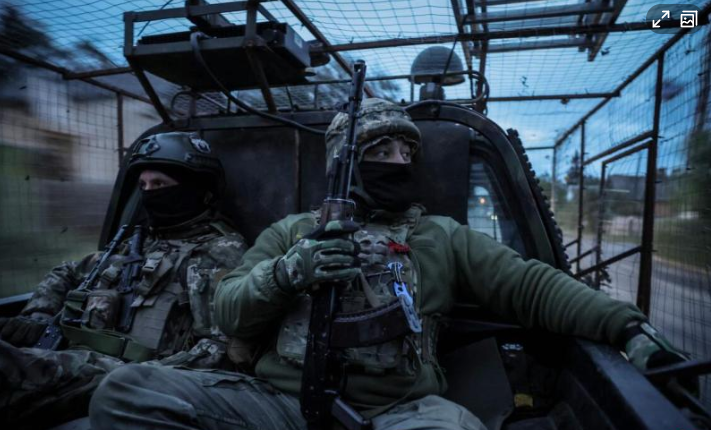

Home > News > Industry news > EU Drone Wall Initiative: Advanced Anti-Drone Defense Systems
The European Union is advancing its comprehensive anti drone system initiative, with plans to establish a fully operational “Drone Wall” by the end of 2027. This strategic defense network aims to counter potential threats from unmanned aerial systems along EU borders.
Ukrainian soldiers on a military vehicle covered with anti-drone netting in Donetsk frontline

Following incidents where NATO member Poland intercepted Russian drones in its airspace, EU Commission President von der Leyen advocated for establishing a comprehensive Integrated Drone Defense network. Initially focused on fortifying Eastern borders, the project has expanded in scope as multiple EU countries reported unidentified drone activities.
EU officials revealed that the European Drone Defence Initiative is scheduled for initial operational capability
by late 2026, with full deployment expe
cted by the end of 2027. The initiative incorporates advance
d RF Jamming Module technology and comprehensive Drone Mitigation Kit solutions.

The European Commission officially released its “Defense Readiness Roadmap 2030” on October 16, detailing the technical specifications for the Modular CUAS System. This comprehensive framework outlines four key projects, including the “European Drone Wall,” “East Flank Watch,” “Air Defense Shield,” and “Space Defense Card.”
Visualization of the EU’s integrated defense systems
The “East Flank Watch” program specifically aims to integrate ground defense systems, air defense networks, and specialized Custom Drone Jammer technologies to enhance protection for Southeastern EU nations. The roadmap also identifies nine capability gaps that need addressing, including missile operations, military mobility, and OEM Drone Jammer deployment.
According to Robert Thoraster, research
er at the Royal United Services Institute, “This European Drone Wall integrates virtually all air defense assets, establishing robust operational capabilities. From ground radar and interceptor drones to missiles and electronic warfare systems for jamming drones – all must coordinate 24/7, presenting a significant challenge.”

The ambitious Drone Wall project faces substantial implementation hurdles, particularly regarding the UAS Jamming Module interoperability and system integration. During the Copenhagen EU meeting in early October, discussions about constructing the drone wall over Poland, Estonia, Latvia, Lithuania, Finland, Denmark, Romania, and Bulgaria extended from two to four hours due to contentious debates.
Advanced drone detection and neutralization systems
German Defense Minister Pistorius expressed skepticism about the project’s feasibility within the proposed timeline, suggesting it might take three to four years or longer to realize. The development of effective Customizable Counter-Drone solutions requires significant technological advancement and standardization across member states.
Financial allocation presents another major challenge, with an estimated cost reaching billions of euros. Southern European countries have emphasized that any joint defense project should address EU-wide security concerns, not just Eastern border protection. Technical limitations in European drone defense technology, including frequent false alarms and detection failures, further complicate implementation.
The proposed anti drone system integrates multiple detection and neutralization technologies:
Key implementation hurdles for the Modular CUAS System:
86-13920737097
AddNo. 15, Rongyuan Road, Huayuan Industrial Park, Binhai Hi-tech Zone, Tianjin, China.
E-mailjackyjingtj@gmail.com
Copyright @ 2025 BNT PTE. LTD. No:84463
Copyright @ 2025 BNT PTE. LTD.
Copyright @ 2025BNT PTE. LTD.